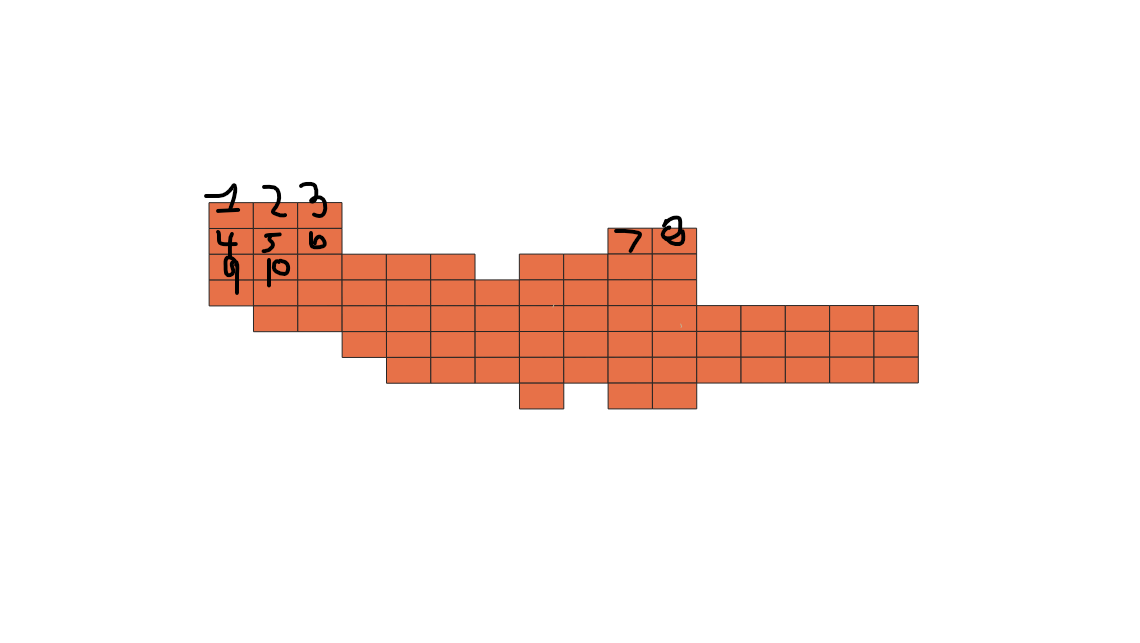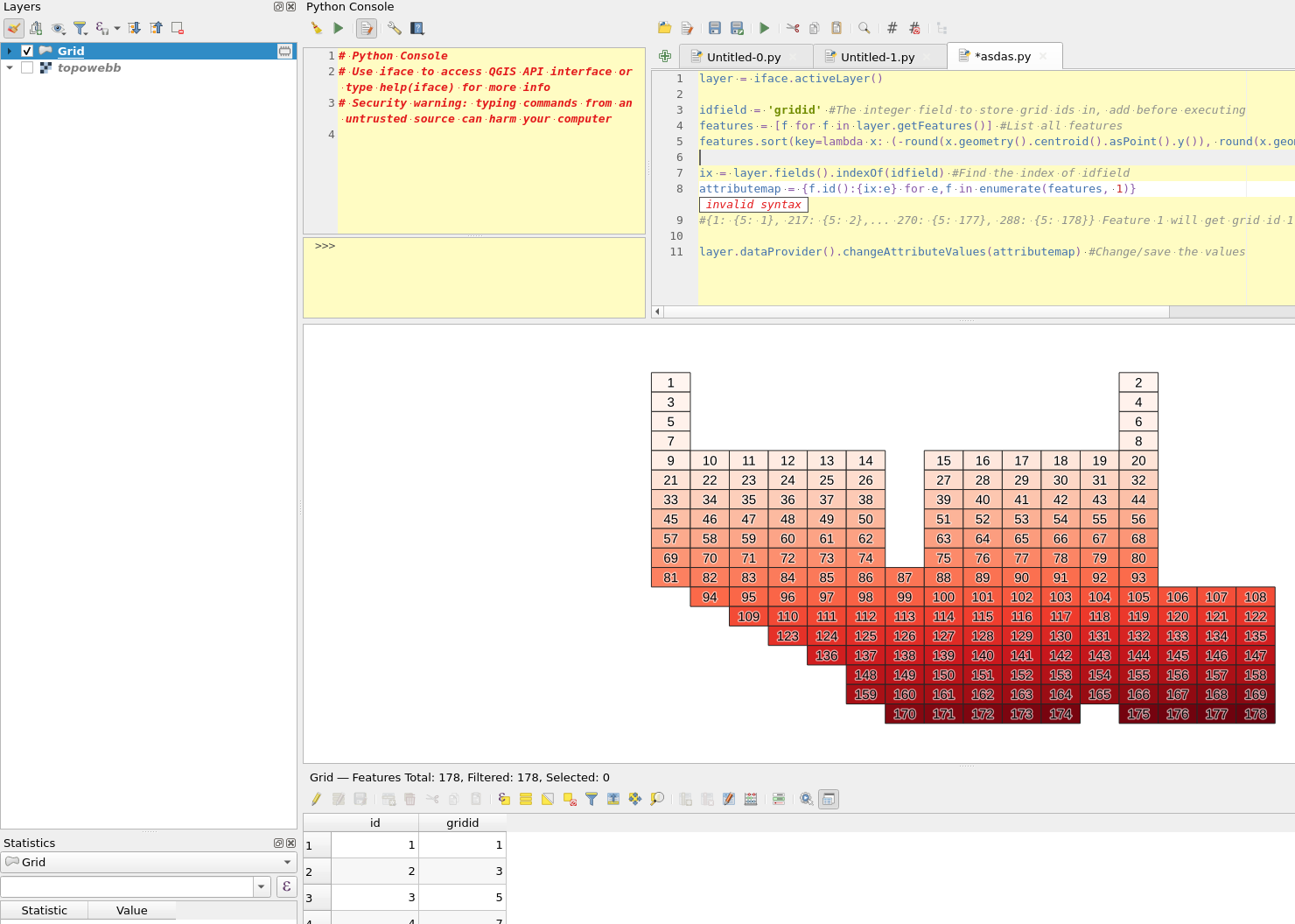How can I generate ids for an irregular shaped grid that increase from west to east and north to south (left to right, top to bottom)?
I've tried using this example and it almost works, but it does not work for an odd shaped grid - only symmetrical ones.
In the included image, the algorithm placed 9 below 8 instead of below 4 where it should be.
My Python code attempts to sort the rectangles horizontally instead of generating ids, but it is the same idea.
def sorted_horizontally(self):
...snip...
faps_centroids = {k: v.geometry().centroid().asPoint() for k, v in faps.items()}
centroids = []
for k, v in faps_centroids.items():
centroids.append( (v.x(), v.y()) )
# X COORDINATE OPERATIONS
min_centroid = min(centroids, key = lambda x: x[0])
max_centroid = max(centroids, key = lambda x: x[0])
min_x_centroid = min_centroid[0]
max_x_centroid = max_centroid[0]
x_centroids = [i[0] for i in centroids]
x_set = set(x_centroids)
distinct_x = len(x_set)
range_x_centroid = max_x_centroid - min_x_centroid
# Y COORDINATE OPERATIONS
y_min_centroid = min(centroids, key = lambda x: x[1])
y_max_centroid = max(centroids, key = lambda x: x[1])
min_y_centroid = y_min_centroid[1]
max_y_centroid = y_max_centroid[1]
y_centroids = [i[1] for i in centroids]
y_set = set(y_centroids)
distinct_y = len(y_set)
range_y_centroid = max_y_centroid - min_y_centroid
# X VALUES
x_values = []
for k, v in faps_centroids.items():
value = round( (v.x() - min_x_centroid) / (range_x_centroid/ distinct_x ) )
x_values.append(value)
x_values_set = sorted(list(set(x_values)))
row_dict = {}
for k, v in faps_centroids.items():
value = round( (v.x() - min_x_centroid) / (range_x_centroid/ distinct_x ) )
row_dict[k] = x_values_set.index(value) + 1
row_dict = {k:v for k, v in sorted(row_dict.items(), key = lambda x: x[1])}
# Y VALUES
col_dict = {}
y_values = []
for k, v in faps_centroids.items():
value = round ( (max_y_centroid - v.y()) / (range_y_centroid / distinct_y) )
y_values.append(value)
y_values_set = sorted(list(set(y_values)))
for k, v in faps_centroids.items():
value = round ( (max_y_centroid - v.y()) / (range_y_centroid / distinct_y) )
col_dict[k] = y_values_set.index(value) + 1
col_dict = {k:v for k, v in sorted(col_dict.items(), key = lambda x: x[1])}
# BOTH X, Y
final_dict = {}
for k, v in col_dict.items():
for kk, vv in row_dict.items():
if k == kk:
final_dict[k] = (vv, v)
final_sort = sorted(final_dict, key = lambda k: (final_dict[k][1], final_dict[k][0]))
return final_sort


